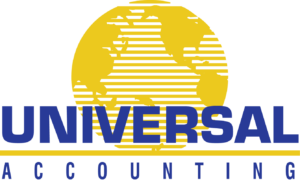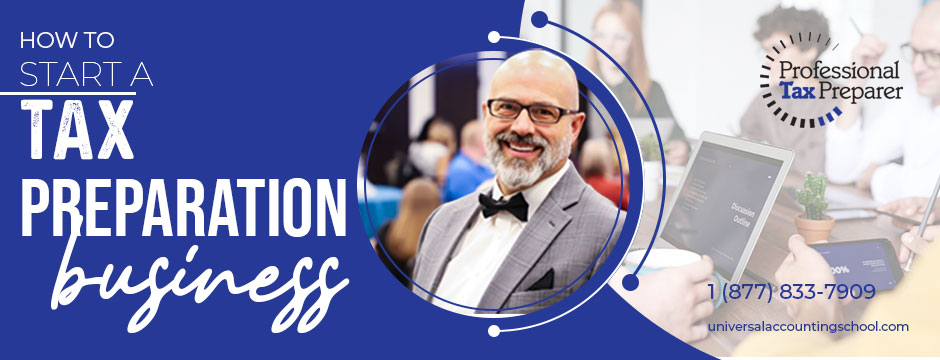Do you want to start a tax business? This can be a rewarding venture that allows you to help individuals and businesses navigate the complex world of taxes. If you have a strong understanding of tax laws and regulations, attention to detail, and excellent organizational skills, starting your own tax business might be the perfect opportunity for you. In this comprehensive guide, we will walk you through the step-by-step process of how to start a tax preparation business and provide valuable insights to help you succeed.
First, Let Us Understand What Is A Tax Preparation Business?
A tax preparation business is a service-based company. It specializes in helping individuals and businesses prepare and file their tax returns accurately. The business ensures compliance with tax laws and regulations. Tax preparation businesses assist clients in organizing their financial information. They also calculate taxable income, apply eligible deductions and credits, and complete the necessary tax forms. These businesses may offer additional services such as tax planning, audit assistance, and providing advice on tax-related matters. Tax preparation businesses can operate as independent entities or as part of a larger accounting or financial services firm. Their primary goal is to simplify the tax filing process for their clients and ensure compliance with tax obligations.
Step-By-Step Process On Starting Your Tax Preparation Process
The process on how to start a tax preparation business involves several important steps. By following a step-by-step approach, you can set a solid foundation for your venture and increase your chances of success. Here is a brief overview of the key steps involved in starting your tax preparation business:
- Conduct Market Research:Before diving into the world of tax preparation, it’s essential to conduct thorough market research. Understanding your target audience is crucial. Determine whether you will be targeting individuals, small businesses, or specific industries that may require specialized tax services. Identify the competition in your area and assess their services, pricing, and customer base. This research will help you position your business effectively and tailor your services to meet the needs of your potential clients.
- Gain the Necessary Qualifications and Certifications: To build credibility and establish trust with your clients, it’s crucial to obtain the necessary qualifications and certifications. Consider becoming a Professional Tax Preparer (PTP), an Enrolled Agent (EA), Certified Public Accountant (CPA), or completing the IRS Annual Filing Season Program (AFSP). These certifications demonstrate your expertise and knowledge in tax preparation, allowing clients to feel confident in your abilities.
- Create a Business Plan: Developing a comprehensive business plan is a critical step in starting any business. Outline your business goals, target market, pricing structure, marketing strategies, and financial projections. A well-crafted business plan will guide you throughout the startup process and serve as a roadmap for your future success.
- Choose a Business Structure: Decide on the most suitable business structure when you start a tax business. Common options include sole proprietorship, partnership, Limited Liability Company (LLC), or Corporation. Consult with a legal professional or accountant to understand the legal and tax implications of each structure and choose the one that aligns with your long-term business goals.
- Obtain the Necessary Licenses and Permits: Ensure that you comply with all local, state, and federal regulations by obtaining the necessary licenses and permits. Check with your local government agencies and IRS for specific requirements in your area. This may include registering your business name, obtaining an Employer Identification Number (EIN), and acquiring any professional licenses required in your jurisdiction.
- Set Up Your Office: Establish a dedicated workspace for your tax preparation business. This can be a home office or a leased commercial space, depending on your budget and needs. Equip your office with essential tools, including reliable computer systems, tax software, high-speed internet connection, and comfortable furniture. Consider investing in secure data storage and backup systems to protect client information.
- Develop Pricing and Service Offerings: Determine your pricing structure and service offerings based on your market research and target audience. Consider offering various packages or tiered pricing to cater to different client needs. Ensure that your pricing covers your expenses and allows for a reasonable profit margin. Communicate your pricing clearly to potential clients to avoid any misunderstandings.
- Create a Marketing Strategy: When you start a tax business, develop a comprehensive marketing strategy to promote your tax preparation business. Leverage both online and offline channels to reach your target audience. Create a professional website that showcases your services, expertise, and contact information. Utilize social media platforms, email marketing, search engine optimization (SEO), and online advertising to increase your visibility. Network with local businesses, attend industry events, and consider offering free educational seminars to establish yourself as a trusted tax expert in your community.
- Focus on Customer Service and Retention: Providing excellent customer service is crucial for the long-term success of your tax preparation business. Ensure prompt and professional communication with your clients, addressing their concerns and inquiries in a timely manner. Strive to exceed their expectations by delivering accurate and reliable tax services. Implement a system for client retention, such as offering referral incentives or sending personalized follow-up emails after tax season.
- Stay Updated and Evolve: The tax industry is constantly evolving with new laws, regulations, and technology advancements. Stay updated on the latest changes in tax laws and invest in continuing education to enhance your skills. Embrace technological advancements, such as cloud-based tax software and digital document management systems, to streamline your processes and improve efficiency.
Partnering With Universal Accounting On Successfully Starting Your Tax Preparation Business
Partnering with Universal Accounting can be a game-changer when it’s about how to start a tax business. Universal Accounting is a renowned provider of comprehensive accounting and tax training programs designed to equip aspiring tax professionals with the skills and knowledge needed to thrive in the industry. Here’s how partnering with Universal Accounting can benefit you on your journey to building a successful tax preparation business:
- Expert Training and Certification: Universal Accounting offers top-notch training programs that cover all aspects of tax preparation, from basic principles to advanced strategies. Their courses are designed to provide a solid foundation in tax laws, regulations, and best practices. By completing their training and obtaining their certification, you’ll gain the credibility and expertise necessary to excel in the field of tax preparation.
- Proven Systems and Processes: Universal Accounting has developed proven systems and processes that can streamline your tax preparation operations and enhance your efficiency. Their methodologies and tools are designed to help you deliver accurate and timely tax services to your clients. By implementing these systems, you can establish a strong reputation for professionalism and reliability.
- Ongoing Support and Mentoring: One of the key advantages of partnering with Universal Accounting is the ongoing support and mentoring they provide. Their team of experienced professionals is dedicated to helping you succeed. They offer guidance, answer your questions, and provide valuable insights to navigate the challenges of starting and growing your tax preparation business.
- Marketing and Business Development Assistance: Universal Accounting understands the importance of effective marketing and business development strategies in growing your tax preparation business. They provide resources, tips, and guidance on marketing your services, attracting clients, and expanding your business. Their expertise in this area can give you a competitive edge in the market.
- Professional Network: By partnering with Universal Accounting, you gain access to a vast network of professionals in the tax and accounting industry. This network can be invaluable in terms of collaboration, referrals, and staying connected with industry trends and opportunities. Building relationships within this network can open doors to new clients and strategic partnerships.
- Continuing Education and Professional Development: The tax industry is constantly evolving, with new laws and regulations being introduced regularly. Universal Accounting offers continuing education and professional development programs to ensure that you stay updated on the latest changes and trends. This commitment to ongoing learning and improvement is crucial for staying competitive and providing high-quality tax services.
Partnering with Universal Accounting can provide you with the tools, knowledge, and support necessary to start and grow a successful tax preparation business. Our training programs, systems, mentoring, and marketing assistance can give you a competitive advantage and help you build a solid foundation for long-term success. Embracing this partnership can empower you to deliver exceptional tax services, build a strong client base, and achieve your goals in the tax preparation industry.
Wrapping Up
If you want to start a tax business, remember that it requires careful planning, industry knowledge, and dedication to providing exceptional service. By following this comprehensive guide and leveraging your expertise, you can successfully launch and grow your tax business. Remember to continuously adapt to changes in the industry, focus on customer satisfaction, and stay committed to providing accurate and reliable tax services. With determination and a strong work ethic, your tax preparation business can thrive in this competitive market.
If you’re interested in starting your own accounting business, then you’re probably mulling over a ton of questions about how to get started. Like any small business, starting a bookkeeping, tax and/or accounting business, can seem daunting. But with the right support and training, anyone can start an accounting business.
Here are answers from industry experts to some of the most common questions we hear from people thinking about starting their own accounting practice.
Q: How profitable is a tax business?
The profitability of a tax business can vary based on several factors, such as location, clientele, pricing, and services offered. Generally, tax businesses can be quite profitable, especially during tax season when the demand for tax preparation services is high. Building a loyal client base and offering additional accounting or financial services can further enhance profitability. However, it’s essential to manage costs, stay updated with tax laws, and maintain a strong reputation to ensure long-term profitability.
Q: How do I create a tax practice?
Creating a tax practice involves several steps:
- Obtain the necessary education and certifications in tax preparation.
- Choose a business structure (e.g., sole proprietorship, LLC).
- Register your tax practice with the appropriate authorities and obtain any required licenses or permits such as your IRS Tax EIN #.
- Set up a professional workspace and invest in essential tools and software.
- Determine the services to be provided such as tax resolution, planning and/or preparation.
- Develop a pricing structure for your services.
- Create a marketing strategy to attract clients and promote your tax practice.
- Network with other professionals to gain referrals and build partnerships.
- Offer exceptional customer service to retain clients and foster positive word-of-mouth.
Q: How to start a tax preparation business?
Starting a tax preparation business involves the following steps:
- Conduct thorough research on the tax preparation industry and your target market.
- Obtain the required tax preparer credentials and certifications and your IRS Tax EIN #.
- Decide on your business structure and register your business with the appropriate authorities.
- Set up a physical office or establish a virtual presence, including a professional website.
- Invest in tax preparation software and tools.
- Develop a pricing strategy for your services.
- Implement marketing initiatives to promote your business and attract clients.
- Comply with all legal and regulatory requirements, including data security and privacy measures.
- Build relationships with clients by providing excellent service and maintaining professionalism.
Q: What do I need to start a tax preparation business?
To start a tax preparation business, you will need the following:
- Proper education and training in tax preparation.
- Relevant certifications and licenses required in your area and your IRS Tax EIN #.
- An office space (physical or virtual) equipped with necessary tools and technology.
- Professional tax preparation software.
- A business plan outlining your goals, target market, and financial projections.
- Marketing materials to promote your services (e.g., business cards, brochures).
- Knowledge of tax laws and regulations, including updates and changes.
- Strong organizational and time management skills to handle multiple clients and deadlines.
- Compliance with data security and privacy standards to protect client information.
Q: How to start a tax preparation business from home?
Starting a tax preparation business from home involves the following steps:
- Acquire the required education and certifications in tax preparation and have your IRS Tax EIN #..
- Designate a dedicated workspace within your home for your tax practice.
- Obtain any necessary licenses or permits to operate a home-based business.
- Purchase professional tax preparation software and equipment.
- Develop a business plan outlining your services, target market, and marketing strategies.
- Create a professional website to showcase your services and contact information.
- Implement marketing efforts to attract clients, such as social media, networking, and referrals.
- Set up a secure system for handling and storing client information.
- Ensure you have the necessary insurance coverage to protect your business and clients.
- Provide exceptional service to build a solid client base and maintain a strong reputation.
Share this post: on Twitter on Facebook on Google+







